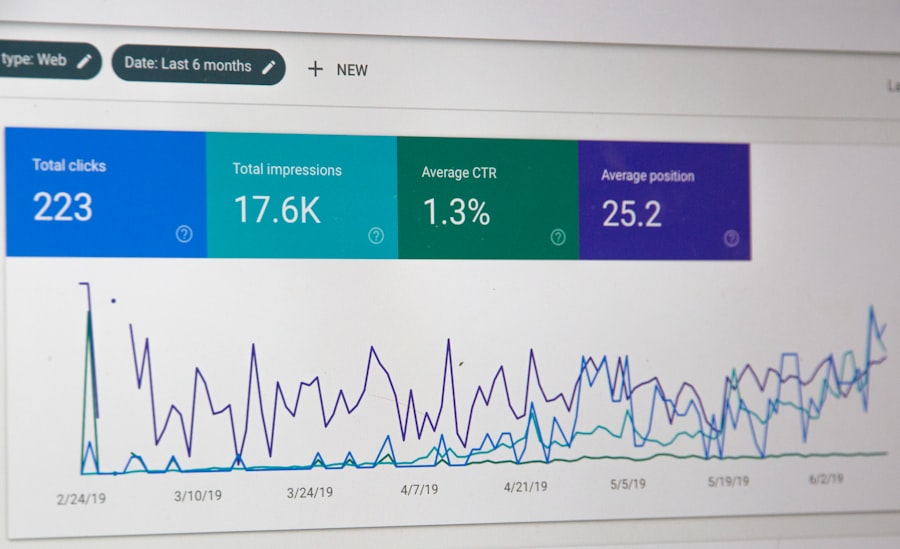Referral marketing is a powerful strategy that leverages the influence of satisfied customers to attract new clients. You may have noticed how often people trust recommendations from friends and family over traditional advertising. This phenomenon is at the heart of referral marketing, where existing customers become advocates for your brand, sharing their positive experiences with others.
By harnessing this natural tendency, businesses can create a cost-effective and highly efficient way to grow their customer base. In essence, referral marketing capitalizes on the trust that exists in personal relationships. When someone you know recommends a product or service, it carries a weight that no advertisement can replicate.
This method not only helps in acquiring new customers but also fosters loyalty among existing ones. As you delve deeper into the world of referral marketing, you will discover various strategies and technologies that can enhance its effectiveness, making it an indispensable tool for modern businesses.
Key Takeaways
- Referral marketing is a powerful strategy for acquiring new customers through word-of-mouth recommendations from existing customers.
- Technology has revolutionized referral marketing, making it easier to track and incentivize referrals, and reach a wider audience.
- Social media platforms provide a valuable channel for referral marketing, allowing businesses to tap into their customers’ networks and reach potential new customers.
- Data analytics can help businesses optimize their referral programs by providing insights into customer behavior and referral patterns.
- Automation and personalization are key trends in referral marketing, allowing businesses to streamline the referral process and tailor incentives to individual customers.
The Impact of Technology on Referral Marketing
Technology has revolutionized referral marketing, transforming how businesses connect with potential customers. In the past, word-of-mouth referrals were largely organic and relied on personal interactions. However, with the advent of digital platforms, you now have the ability to track and manage referrals more efficiently than ever before.
Online tools and software can help streamline the process, making it easier for you to incentivize referrals and monitor their success. Moreover, technology enables you to reach a broader audience. Social media platforms, email marketing, and websites allow you to share referral programs with countless individuals instantly.
This increased reach means that your satisfied customers can share their experiences with a much larger network, amplifying the impact of their recommendations. As you explore the intersection of technology and referral marketing, you’ll find that leveraging these tools can significantly enhance your outreach and engagement efforts.
Leveraging Social Media for Referral Marketing

Social media has become a cornerstone of referral marketing strategies.
Platforms like Facebook, Instagram, Twitter, and LinkedIn provide an ideal environment for sharing experiences and recommendations.
You can encourage your customers to share their positive experiences on these platforms, creating a ripple effect that can lead to increased brand awareness and customer acquisition.
By crafting engaging content that resonates with your audience, you can motivate them to spread the word about your products or services. Additionally, social media allows for the implementation of referral programs that are both engaging and rewarding. You might consider creating shareable content or referral links that customers can easily distribute among their networks.
Offering incentives such as discounts or exclusive offers for both the referrer and the new customer can further encourage participation. As you harness the power of social media in your referral marketing efforts, you’ll find that it not only drives new business but also strengthens your relationship with existing customers.
Using Data Analytics to Optimize Referral Programs
Data analytics plays a crucial role in optimizing referral marketing programs. By analyzing customer behavior and engagement metrics, you can gain valuable insights into what drives successful referrals. You may want to track which channels generate the most referrals or identify the characteristics of customers who are most likely to refer others.
This information allows you to tailor your strategies to maximize effectiveness. Furthermore, data analytics enables you to measure the success of your referral programs in real-time. You can assess key performance indicators such as conversion rates, customer acquisition costs, and overall return on investment.
By continuously monitoring these metrics, you can make informed decisions about adjustments to your referral strategies. As you embrace data-driven approaches in your referral marketing efforts, you’ll be better equipped to refine your tactics and achieve greater results.
Automation and Personalization in Referral Marketing
Automation has become an essential component of modern referral marketing strategies. By automating certain processes, you can save time and resources while ensuring that your referral programs run smoothly. For instance, automated emails can be sent to customers after a purchase, encouraging them to refer friends and family.
This not only keeps your brand top-of-mind but also simplifies the process for your customers. However, while automation is beneficial, personalization remains key to successful referral marketing. You should strive to create personalized experiences for your customers by tailoring messages based on their preferences and behaviors.
For example, if a customer frequently purchases a specific product, you might highlight related items in your referral communications. By combining automation with personalization, you can create a seamless experience that encourages referrals while making customers feel valued.
The Role of Mobile Apps in Referral Marketing

Mobile apps have emerged as a significant player in the realm of referral marketing. With the increasing reliance on smartphones for everyday tasks, having a dedicated app can enhance customer engagement and facilitate referrals. You might consider integrating referral features directly into your app, allowing users to easily share their experiences with friends and family through social media or messaging platforms.
Moreover, mobile apps provide an opportunity for real-time communication with customers. You can send push notifications to remind users about referral programs or offer exclusive rewards for referrals made through the app. This immediacy can drive higher participation rates and create a sense of urgency among users.
As you explore the potential of mobile apps in your referral marketing strategy, you’ll find that they can significantly enhance customer interaction and drive growth.
Integrating Technology with Customer Relationship Management (CRM) Systems
Integrating technology with Customer Relationship Management (CRM) systems is vital for maximizing the effectiveness of your referral marketing efforts. A robust CRM system allows you to track customer interactions and gather valuable data about their preferences and behaviors. By incorporating referral tracking into your CRM, you can gain insights into which customers are most engaged in referring others and identify trends over time.
Additionally, this integration enables you to segment your audience effectively. You can tailor your referral marketing campaigns based on customer demographics or purchase history, ensuring that your messages resonate with specific groups. By leveraging CRM data in conjunction with technology-driven referral strategies, you can create targeted campaigns that yield higher conversion rates and foster long-term customer relationships.
Future Trends in Technology and Referral Marketing
As technology continues to evolve, so too will the landscape of referral marketing. One emerging trend is the use of artificial intelligence (AI) to enhance personalization and optimize referral strategies. AI algorithms can analyze vast amounts of data to identify patterns in customer behavior, allowing you to tailor your messaging more effectively than ever before.
This level of personalization will likely lead to increased engagement and higher conversion rates. Another trend is the growing importance of influencer marketing within referral strategies.
As social media influencers gain prominence, partnering with them can amplify your referral efforts significantly.
Influencers have established trust with their followers, making their recommendations highly effective in driving new business. As you look toward the future of referral marketing, staying attuned to these trends will be essential for maintaining a competitive edge in an ever-changing digital landscape. In conclusion, referral marketing is an invaluable strategy that thrives on the power of personal recommendations and satisfied customers.
By embracing technology and leveraging various platforms such as social media and mobile apps, you can enhance your referral programs significantly. The integration of data analytics and CRM systems will allow you to optimize your efforts further while automation and personalization ensure a seamless experience for your customers. As you navigate this dynamic field, staying informed about future trends will empower you to adapt and thrive in an increasingly competitive marketplace.
In exploring the role of technology in enhancing referral marketing strategies, it’s beneficial to consider how technology facilitates business development within networking groups. A related article that delves into this topic is “How Business Development Supports Continuous Networking Group Growth.” This piece discusses the integration of technological tools to streamline communication, manage member data, and track the effectiveness of referral activities within professional networks. For a deeper understanding of how technology can be leveraged to support and scale networking efforts, which in turn can boost referral marketing, you can read more about it here.
FAQs
What is referral marketing?
Referral marketing is a strategy where businesses encourage their existing customers to refer new customers to their products or services. This is often done through incentives or rewards for successful referrals.
How does technology play a role in scaling referral marketing?
Technology plays a crucial role in scaling referral marketing by providing tools and platforms that make it easier for businesses to track and manage their referral programs. This includes referral tracking software, customer relationship management (CRM) systems, and social media platforms.
What are some examples of technology used in referral marketing?
Some examples of technology used in referral marketing include referral tracking software such as ReferralCandy and Ambassador, CRM systems like Salesforce and HubSpot, and social media platforms like Facebook and Twitter for sharing referral links.
How does technology help businesses reach a larger audience through referral marketing?
Technology helps businesses reach a larger audience through referral marketing by enabling them to leverage social media and other online channels to promote their referral programs. This allows businesses to tap into the networks of their existing customers and reach a wider audience.
What are the benefits of using technology to scale referral marketing?
The benefits of using technology to scale referral marketing include increased efficiency in managing and tracking referrals, the ability to reach a larger audience, and the potential for higher conversion rates and customer acquisition. Additionally, technology allows for more personalized and targeted referral campaigns.





